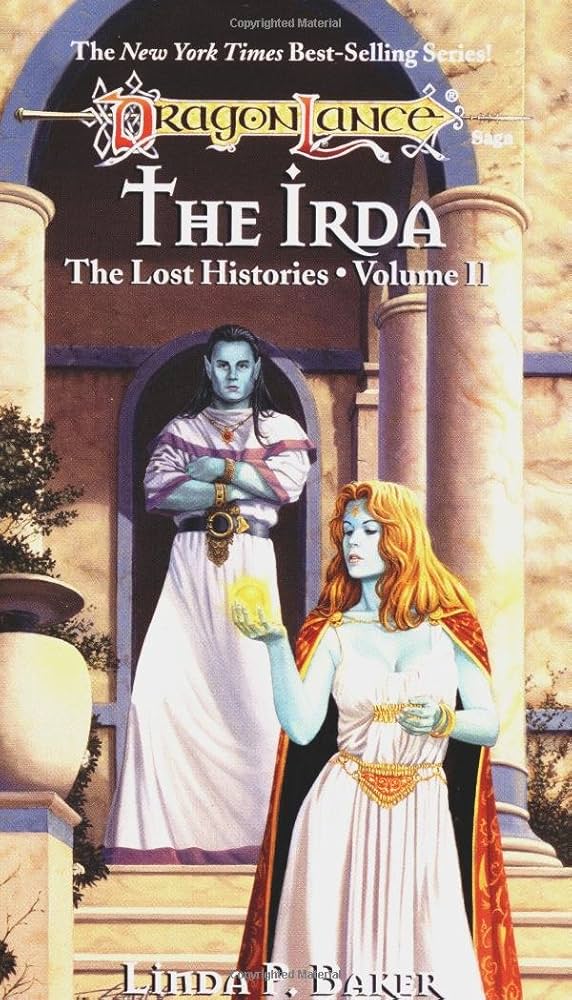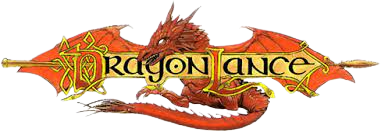The Irda

Table of Contents
ToggleOverview
The Irda tells the origin story and modern struggles of the High Ogres, an ancient and noble race created by the gods to be among the most beautiful and wise beings on Krynn. But over time, most ogres fell into cruelty and corruption—leaving only the Irda, a secretive few who retreated to an isolated island, determined to preserve their purity and morality.
Set just before the Chaos War, this novel blends myth, isolationist philosophy, and emotional turmoil, as the Irda face a looming crisis that forces them to choose between safety and action, and between the past and the future.
At the heart of it is a terrible secret: the Irda possess the ancient artifact that could unleash Chaos itself.
Main Character: Usha
- A young woman of mysterious origin, found and raised by the Irda after washing up on their island as an infant.
- She is curious, impulsive, and different—physically and emotionally—from the serene, reserved Irda around her.
- Her journey is one of identity, belonging, and destiny, as she struggles to understand who she really is—and whether she is Irda, human, or something else entirely.
Supporting Characters
- The Speaker of the Irda – The spiritual and political leader of the Irda, whose strict adherence to tradition becomes a source of conflict.
- Lord Chovuk – A powerful Irda elder who becomes increasingly convinced that their isolation is no longer tenable.
- Human sailors and scholars – Outsiders who enter the story as Usha begins to question the Irda’s avoidance of the outside world.
- The Graygem of Gargath – A seemingly inert relic with catastrophic potential, capable of releasing Chaos—and central to the plot’s stakes.
Setting
- Takes place primarily on the Island of the Irda, a lush, magically protected realm hidden from the rest of the world. It’s a place of peace, introspection, and eerie perfection.
- The second half expands to include parts of the mainland, especially as Chaos begins to stir, and outsiders encroach on Irda secrets.
- The tone and atmosphere are dreamlike and melancholic, reflecting the Irda’s detachment from the violent, chaotic world beyond.
Plot Summary
A Race in Retreat
The Irda, descended from the High Ogres, have long hidden themselves from the rest of Krynn. Though they pride themselves on their beauty, wisdom, and pacifism, they are haunted by guilt—their kind were once rulers of the world, before their fall into monstrousness.
Now, they live apart, bound by laws that forbid them from interfering in the outside world.
But hidden in their care is the Graygem of Gargath, an ancient and dangerous artifact tied to wild magic and the god Chaos. Its presence threatens their carefully maintained peace.
Usha’s Awakening
Usha, raised among the Irda, begins to question their traditions. She is bolder, more curious, and more emotional than her peers. Drawn to the Graygem and plagued by visions and strange feelings, Usha sets in motion a series of events that break the Irda’s isolation.
She sneaks away from the island, encountering humans, other ogres, and cultures she has never known. Her presence causes ripples across Krynn, and her connection to the Graygem begins to awaken something ancient and terrible.
The Breaking of the World
As word of the Graygem spreads, various factions seek it for their own ends. The Irda, despite centuries of hiding, must face the fact that no isolation is absolute, and that their past sins cannot be buried forever.
In a fateful moment, the Graygem is released, and the being known as Chaos begins to reenter the world. This sets the stage for the Chaos War, the final battle of gods and mortals that follows in later novels.
The Fate of the Irda
Many Irda perish or are scattered. Usha, revealed to be touched by Chaos herself, becomes a key figure in the coming war (her story continues in Dragons of Summer Flame).
In the end, the Irda’s refusal to act earlier may have doomed them—but Usha represents hope, change, and the possibility of new beginnings.
Themes
- Isolation vs. Responsibility – The Irda’s desire to hide from the world is understandable—but ultimately unsustainable. Retreat cannot undo history.
- Identity and Belonging – Usha’s journey reflects the search for self in the midst of cultural dissonance and personal uniqueness.
- Power and Corruption – The Graygem is a symbol of unchecked power—and how even well-intentioned guardianship can become a kind of selfishness.
- Change as a Catalyst – Whether it’s Usha, the Graygem, or Chaos itself, the story argues that change is frightening but necessary.
- Beauty vs. Truth – The Irda value harmony and elegance—but truth and courage are often messy, and sometimes the price of beauty is denial.
Tone & Style
- Philosophical, introspective, and poetic, with an emphasis on character emotion and cultural themes.
- Less action-heavy than other Dragonlance books—more focused on inner journeys and societal dilemmas.
- Dreamy and tragic at times, evoking Greek mythology or classical tragedy.
Reception
The Irda is praised for:
- Giving depth to a mysterious and overlooked race
- A compelling and emotionally complex female protagonist
- Exploring high-concept fantasy themes in a focused, elegant narrative
- Laying the groundwork for major events in Dragons of Summer Flame
Some readers may find:
- A slower pace and more abstract tone compared to other Dragonlance adventures
- Less traditional fantasy structure (no large battles, quests, or dungeon crawls)
But for those seeking emotional depth, mythic resonance, and a new angle on Dragonlance history, it’s an essential read.
Final Thoughts
The Irda is a thoughtful, tragic, and beautifully written story that gives voice to one of Krynn’s most secretive races—and reveals the quiet disaster that shaped the final age of the gods. It’s a novel about legacy, hidden power, and what happens when even the wisest cannot escape their past.
Recommended for:
- Fans of mythic, character-driven fantasy
- Readers interested in the origins of the Chaos War
- Those drawn to themes of identity, exile, and redemption
“They were born of beauty, burdened with guilt, and doomed by silence.”
